accelerated Program for the 2023 CAPM Exam
NO CLASSES CURRENTLY SCHEDULED
LIVE ONLINE VIRTUAL VIA ZOOM
WEDNESDAY AND FRIDAYS 7:00PM – 9:30PM EST
JOIN AT ANY TIME
All sessions are recorded and available for 3 months
$799 (LIMITED EARLY BIRD OFFER ENDS SOON, AFTER WHICH PRICING WILL EVENTUALLY BE $899)
![]()
Questions: support@praizion.com
CURRICULUM (ENTIRE CAPM EXAM SYLLABUS DELIVERED LIVE AND INTERACTIVE)
WITH ACCESS TO VIEW RECORDED LIVE SESSIONS FOR 3 MONTHS
- LIVE ONLINE BOOT-CAMP WITH 500 PAGE STUDY GUIDE, 20 HOUR PMBOK AUDIO DIGEST
- IN THE COMFORT OF YOUR HOME
- LOTS OF INTERACTION WITH YOUR INSTRUCTOR!
- GROUP THINK ABOUT REAL-WORLD SCENARIOS
- GROUP LEARN FROM OTHERS
- WHITE-BOARDING WITH SLIDES TO REVIEW AGILE COMPONENTS AND STUDY GUIDE FOR PREDICTIVE COMPONENTS
- GROUP-THINK ABOUT TRICKY QUESTIONS
- EXERCISES ON A ROBUST LEARNING MANAGEMENT SYSTEM WITH 3 MONTHS OF ACCESS
- Q&A AT THE END OF EACH SECTION
- PMBOK® GUIDE, SCRUM GUIDE AND AGILE PRACTICE GUIDE ARE MAIN STUDY GUIDES
- SHORT & SWEET (EASY TO FOLLOW INSTRUCTORS)
project management training FOR YOUR capm EXAM
WEEK 1: Domain 1 Project Management Fundamentals and Core Concepts – 36% | |
| Task 1 | Demonstrate an understanding of the various project life cycles and processes. |
| ·Distinguish between a project, program, and a portfolio. | |
| ·Distinguish between a project and operations. | |
| ·Distinguish between predictive and adaptive approaches. | |
| ·Distinguish between issues, risks, assumptions, and constraints. | |
| ·Review/critique project scope. | |
| ·Apply the project management code of ethics to scenarios (refer to PMI Code of Ethics and Professional Conduct). | |
| ·Explain how a project can be a vehicle for change. | |
| Task 2 | Demonstrate an understanding of project management planning. |
| ·Describe the purpose and importance of cost, quality, risk, schedule, etc. | |
| ·Distinguish between the different deliverables of a project management plan versus product management plan. | |
| ·Distinguish differences between a milestone and a task duration. | |
| ·Determine the number and type of resources in a project. | |
| ·Use a risk register in a given situation. | |
| ·Use a stakeholder register in a given situation. | |
| ·Explain project closure and transitions. | |
| Task 3 | Demonstrate an understanding of project roles and responsibilities. |
| ·Compare and contrast the roles and responsibilities of project managers and project sponsors. | |
| ·Compare and contrast the roles and responsibilities of the project team and the project sponsor. | |
| ·Explain the importance of the role the project manager plays (e.g., initiator, negotiator, listener, coach, working member, and facilitator). | |
| ·Explain the differences between leadership and management. | |
| ·Explain emotional intelligence (EQ) and its impact on project management. | |
| Task 4 | Determine how to follow and execute planned strategies or frameworks (e.g., communication, risks, etc.). |
| ·Give examples of how it is appropriate to respond to a planned strategy or | |
| framework (e.g., communication, risk, etc.). | |
| ·Explain project initiation and benefit planning. | |
| Task 5 | Demonstrate an understanding of common problem-solving tools and techniques. |
| ·Evaluate the effectiveness of a meeting. | |
| ·Explain the purpose of focus groups, standup meetings, brainstorming, etc. | |
WEEK 2: Domain 2 Predictive, Plan-Based Methodologies – 17% | |
| Task 1 | Explain when it is appropriate to use a predictive, plan-based approach. |
| ·Identify the suitability of a predictive, plan-based approach for the | |
| organizational structure (e.g., virtual, colocation, matrix structure, hierarchical, etc.). | |
| ·Determine the activities within each process. | |
| ·Give examples of typical activities within each process. | |
| ·Distinguish the differences between various project components. | |
| Task 2 | Demonstrate an understanding of a project management plan schedule. |
| ·Apply critical path methods. | |
| ·Calculate schedule variance. | |
| ·Explain work breakdown structures (WBS). | |
| ·Explain work packages. | |
| ·Apply a quality management plan. | |
| ·Apply an integration management plan. | |
| Task 3 | Determine how to document project controls of predictive, plan- based projects. |
| ·Identify artifacts that are used in predictive, plan-based projects. | |
| ·Calculate cost and schedule variances. | |
WEEK 3: Domain 3 Agile Frameworks/Methodologies – 20% | |
| Task 1 | Explain when it is appropriate to use an adaptive approach. |
| ·Compare the pros and cons of adaptive and predictive, plan-based projects. | |
| ·Identify the suitability of adaptive approaches for the organizational structure (e.g., virtual, colocation, matrix structure, hierarchical, etc.). | |
| ·Identify organizational process assets and environmental factors that | |
| facilitate the use of adaptive approaches. | |
| Task 2 | Determine how to plan project iterations. |
| ·Distinguish the logical units of iterations. | |
| ·Interpret the pros and cons of the iteration. | |
| ·Translate this WBS to an adaptive iteration. | |
| ·Determine inputs for scope. | |
| ·Explain the importance of adaptive project tracking versus predictive, plan-based tracking. | |
| Task 3 | Determine how to document project controls for an adaptive project. |
| ·Identify artifacts that are used in adaptive projects. | |
| Task 4 | Explain the components of an adaptive plan. |
| ·Distinguish between the components of different adaptive methodologies | |
| (e.g., Scrum, Extreme Programming (XP), Scaled Adaptive Framework (SAFe®), Kanban, etc.). | |
| Task 5 | Determine how to prepare and execute task management steps. |
| ·Interpret success criteria of an adaptive project management task. | |
| ·Prioritize tasks in adaptive project management. | |
WEEK 4: Domain 4 Business Analysis Frameworks – 27% | |
| Task 1 | Demonstrate an understanding of business analysis (BA) roles and responsibilities. |
| ·Distinguish between stakeholder roles (e.g., process owner, process | |
| manager, product manager, product owner, etc.). | |
| ·Outline the need for roles and responsibilities (Why do you need to identify stakeholders in the first place?). | |
| ·Differentiate between internal and external roles. | |
| Task 2 | Determine how to conduct stakeholder communication. |
| ·Recommend the most appropriate communication channel/tool (e.g., reporting, presentation, etc.). | |
| ·Demonstrate why communication is important for a business analyst | |
| between various teams (features, requirements, etc.). | |
| Task 3 | Determine how to gather requirements. |
| ·Match tools to scenarios (e.g., user stories, use cases, etc.). | |
| ·Identify the requirements gathering approach for a situation (e.g., conduct stakeholder interviews, surveys, workshops, lessons learned, etc.). | |
| ·Explain a requirements traceability matrix/product backlog. | |
| Task 4 | Demonstrate an understanding of product roadmaps. |
| ·Explain the application of a product roadmap. | |
| ·Determine which components go to which releases. | |
| Task 5 | Determine how project methodologies influence business analysis processes. |
| ·Determine the role of a business analyst in adaptive and/or predictive, | |
| plan-based approaches. | |
| Task 6 | Validate requirements through product delivery. |
| ·Define acceptance criteria (the action of defining changes based on the situation). | |
| ·Determine if a project/product is ready for delivery based on a | |
| requirements traceability matrix/product backlog. | |
INSTRUCTORS
Live: Phill C. Akinwale, PMP, ACP, CSM, PSM, PSPO
On-Demand: Roy Schilling, ACP, CSP, CSM
clients
We're proud to serve from small to some of the biggest companies in America
We have hundreds of satisfied students!
specifications
DELIVERY
Classes will be held via online webinar. Quizzes can only be taken on a computer or laptop!
System Requirements
- An internet connection – broadband wired or wireless (3G or 4G/LTE)
- Speakers and a microphone – built-in or USB plug-in or wireless Bluetooth
- A webcam or HD webcam – built-in or USB plug-in
- Or, a HD cam or HD camcorder with video capture card
- Supported Operating Systems
- Mac OS X with MacOS 10.7 or later
- MacOS 10.6.8 (Snow Leopard) with limited functionality
- Windows 10
- Windows 8 or 8.1
- Windows 7
- Windows Vista with SP1 or later
- Windows XP with SP3 or later
- Ubuntu 12.04 or higher
- Mint 17.1 or higher
- •Red Hat Enterprise Linux 6.4 or higher
- Oracle Linux 6.4 or higher
- CentOS 6.4 or higher
- Fedora 21 or higher
- OpenSUSE 13.2 or higher
- ArchLinux (64-bit only)
- Supported Tablet and Mobile Devices
- Surface PRO 2 running Win 8.1
- Surface PRO 3 running Win 10
- iOS and Android devices
- Blackberry devices
- Supported Browsers
- Windows: IE7+, Firefox, Chrome, Safari5+
- Mac: Safari5+, Firefox, Chrome
- Linux: Firefox, Chrome
get results
BECOME HYBRIDIZED!
Don’t miss your chance to sign up!
DO NOT LET THIS OFFER GET AWAY!
ONCE IT IS GONE, IT IS GONE!
terms of service
The subscription commences within the first 24 hours of you receiving your registration username and password (on or after the delivery date). Users should keep this reference email to keep track of the time left for your subscription. Users MAY NOT share video access, an online learning account or practice exam for any reason whatsoever. Sharing your username and password is strictly forbidden. Should multiple users be detected on an account, it will be closed immediately without refund. Users MAY NOT lease their account to others or use their account for sublearning and instruction of others. This is strictly forbidden. Ensure that your computer system is compatible with your course of study. Ensure the sample tutorial can be viewed on your system before making a purchase as no refunds will be given. Ensure you are able to log in.
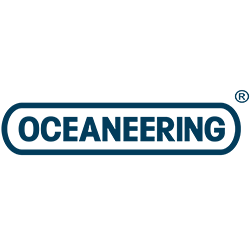
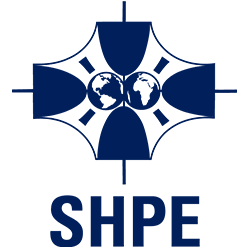
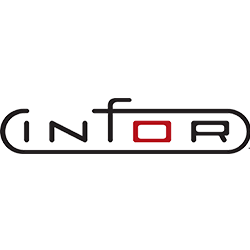


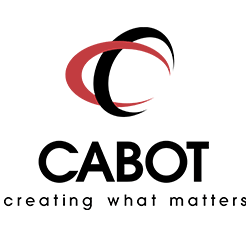






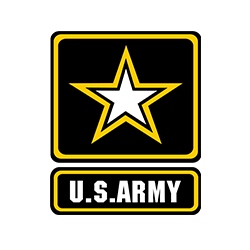




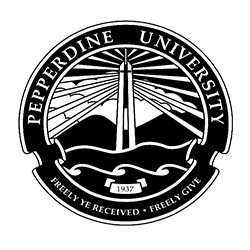
Phill Akinwale is a great motivational trainer. His very personable and caring manner puts students at ease instantly. He truly cares for all of his students. He has brilliant knowledge of the PMBOK.
My preparation for the PMP test focused 100% Phill’s books, test prep materials and notes from his class. His intensive “boot camp” gave me the edge I needed to pass the test on the first attempt. As a Marine Colonel, I have been through hundreds of training classes- Phill is a cut above. I would seek him out for his outstanding training. He has the professional standards of a Marine!
Phill’s PMP course contains everything you need to pass the test, but Phill makes it come alive in his presentations. He has very deep knowledge about the subject, and a way of getting it across that draws you in and keeps you excited about it.
He teaches you to “think like PMI”. He is personally interested in each of his students, and provides mentoring that goes beyond the course work.
Phill led our on-line PMP sessions and mentored candidates after the live training completed. I quickly appreciated his expertise and passion for Project Management and his willingness to help everyone with any question or concern. Phill was always willing to delve into a subject after class and explain any aspect of Project Management in whatever detail was needed for the students’ understanding.
After successfully passing the PMP, I can now enthusiastically report, Phill and Praizion Media are “on-track” with their excellent materials, preparation and personal attention to students. I learned something new and valuable in every session as well as being able to test my knowledge on the spot. In particular, I appreciated Phill’s willingness to answer questions out of class either on the phone or through email. He is a professional who truly cares about his profession as well as the students under his care – an unbeatable combination!
Phill not only conducted an excellent course to prepare me for the PMP exam, but his enthusiasm and expertise of the subject matter were truly an inspiration.
He is passionate about the subject matter, and it shows in the course he has put together, and the continued support he gives after the class has finished. Both Phill and his course are a class act, and I would recommend both without hesitation.
Phill and his company constructed an excellent, comprehensive training program that prepared me for the PMP exam. The training program included audio and video presentations, online tests, and many preparation tools, as well as an intense week-long classroom training class.
He is very enthusiastic and is an expert on the subject. Phill is an excellent teacher and relates well to the people he is training. I would sincerely recommend Phill and his company for anyone wishing to complete the PMP exam.
Phill was my instuctor for my 35 hour PMP classroom training but his support, availability and keeping us accountable to our studies went way beyond the classroom. I passed the exam on November 18, 2010 on my first try because of Phill and his support. Phill’s classes and mock quizzes/exams were not easy because he knew to push us to be sure we were prepared for the rigors for the exam.
Phil provided us with an extensive amount of tools and techniques to help us study as well as coordinated Saturday webinars that allowed us to personally ask questions, review material and learn from others who had passed the exam. I do not believe I would have passed on my first try without Phill’s instruction, involvement and dedication. Thank you Phill for your continued support and eagerness to see us succeed even after the class was over